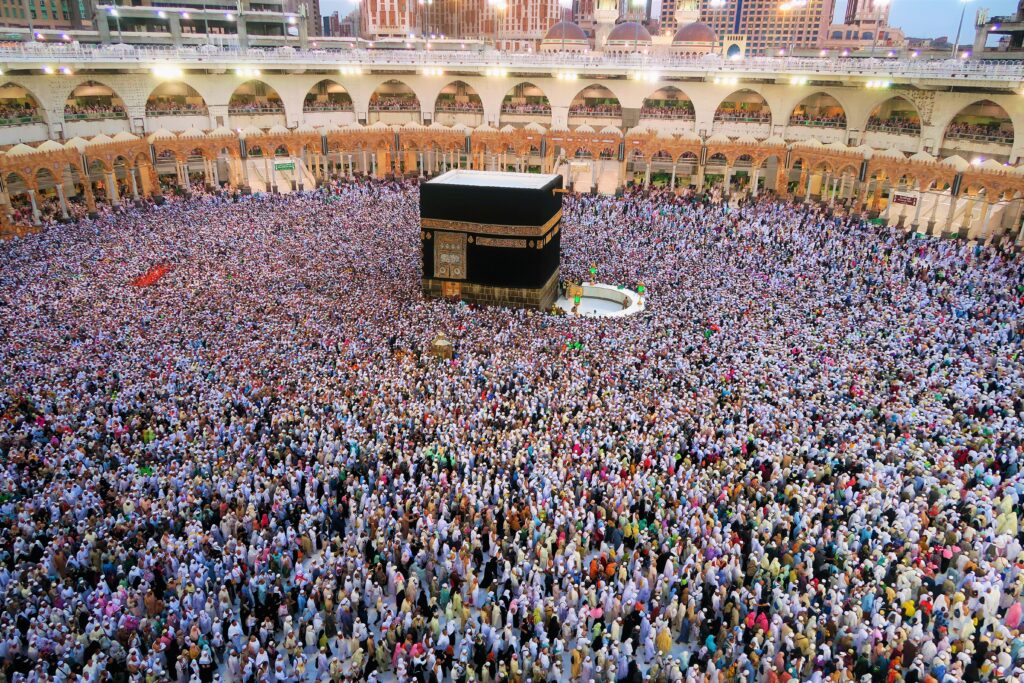Sacrifice or Kurban in Bahasa Melayu has many intrinsic meanings. Let’s look at it from these different perspectives:
- Kurban as a religious ritual which is the act of sacrifice worship or religious ritual of sacrificing animals such as sheep, goat, cows, buffaloes or camels, among the Muslims and the current economic situation due the COVID-19 pandemic.
- Kurban in the context of the victims of the pandemic crisis.
- Kurban in the context of what could we sacrifice in order to make a positive change or what kind of socio-impact change could we make or sustain.
Let us start from the first angle. The message of Kurban for the salvation of humankind is to make a sacrifice to reveal the inner good to establish peace in the world by defeating one’s own ego full of vanity, jealousy, hatred, greed and lust. And the religious ritual is indeed closely related to the economic condition of a nation or locality. We could say, a bidirectional relationship whereby, during the boom time, when the economy is growing, a large number of sacrificial animals would be offered and slaughtered, leading to a huge amount of meats of the slaughtered animals being distributed among the asnaf, poor, or those in need.
Vice versa, there would be less meat available to be distributed during an economic downturn or recession. The irony is during these times, hardship faced by the people are on the rise, more people are affected and as a matter of fact, this is the time where the need or demand for the meat of Kurban would be higher. Due to globalisation and technological advancement, new trends and opportunities to participate in Kurban have emerged. Muslims can now perform Kurban beyond their local neighbourhood and even in another country at comparatively a cheaper rate. While it is not wrong, and not against any rules or regulation nor against any preaching, if you look at it cautiously from rational perspectives, priorities should be given to your neighbours or those who are living within your location or vicinity. During these hard times, the number of needy people who could benefit from the meat distributed would be significantly higher. When we are having good times, the number of people who actually needed assistance is less, then the spillover could be spread to other jurisdictions, other countries or beyond our borders. The Kurban done locally does not only help the recipients of these meats, it also helps the local suppliers, therefore helping the whole economic cycle.
Looking at the second context, victims of the pandemic, those who are ‘sacrificed’ we could look at it from three different perspectives and viewpoints, namely economic victims, social victims, and political victims. From the standpoint of economic, those who have lost their source of income, have reduced flow, exhausted their savings, basically have been pushed from being an able breadwinner into what could be deemed as situational poverty. The sad undeniable fact is, families are being evicted from rented houses, with some finding it hard to put food on the table.
The economic problems have also morphed into frightening social problems. Desperation has driven some to commit petty theft. Statistics showed a rise in suicide cases; 4 suicides daily in Klang Valley alone, and most are attributed to the pandemic.
The third, and most disturbing Kurban victim in this pandemic are those being sacrificed in the name of politics. On a macro level, political parties are fighting and jostling for power, accusing and finger-pointing on the failures, directly or indirectly. This has caused much uneasiness and caused frictions in society. Vaccination, distribution of aids and other efforts are in disarray, thus not optimising the socio-economic impact that is expected or aspired.
On a micro level, politics in companies and institutions has also reared its ugly head. The WFH new norm has provided new avenues for certain greedy parties to strengthen their current position, or aspire for promotion via phones or virtual meetings. This resulted in some workers being victimised, or end up being ‘sacrificed’ as they could not defend themselves fairly in such working arrangements where there is no face-to-face interaction.
Whether at the micro or macro level, there would be casualties, victims or sacrificed employees, especially those who are not involved in ‘office politic’.
Let us take look at the third perspective; what sacrifices could we make during this pandemic whether time, money or even prayers. Extend a helping hand to those in need, the white flags. Sacrifice some of your earnings or your time to identify those in need and assist them through the right channels. Leave politics or the blame game out of the equation. Remember reciprocity, what you give is what you get. Practice integrity, and let there be transparency. Do not present half-truths or talk about only one side of the coin.
Live up to the true meaning of Kurban, which is to sacrifice in order to reveal your inner good and establish peace in the world by defeating one’s own ego full of vanity, jealousy, hatred, greed and lust.
Be a quality person, build an organisation, build the nation. There is life after death for the believers, for others, there is ‘karma’.
By Assoc. Prof. Dr. Baharom Abdul Hamid


